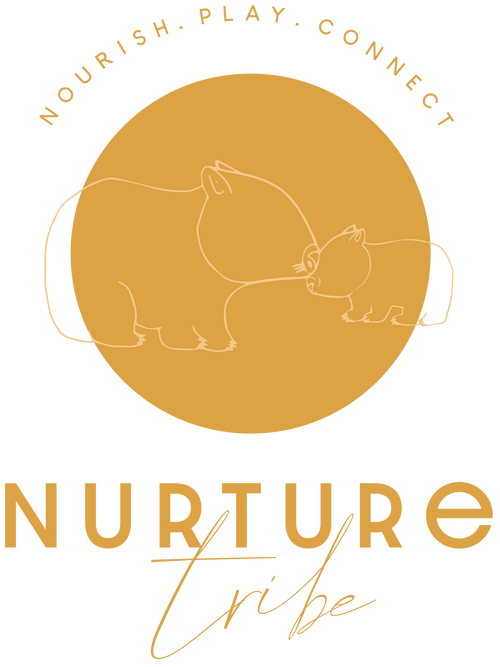In the words of American painter, TV personality and cult figure Bob Ross, “we don't make mistakes, just happy little accidents.” The same can be said for the invention of playdough.
A literal definition of a happy accident, the much-loved versatile modelling clay and preschool staple wasn’t originally intended to be a child’s plaything, and it was actually in American homes for at least 20 years before being used as one.
Cleo McVicker and his brother Noah from Ohio-based soap company Kutol Products had developed and marketed the putty for one use only – as a soot removing, wallpaper cleaner. However, coming in to the 1950s, a transitional trend from coal furnace heating to oil, gas and electricity had begun, so the product’s purpose was fast becoming redundant. Following Cleo's death in 1949, his son Joseph McVicker took over the family business and in 1955, his school teacher sister-in-law, Kay Zufall came up with an ingenious idea – why can’t kids play with it instead? – and thus, a sensory sensation was born.
Now owned by Hasbro, the official Play-Doh brand is a worldwide phenomenon that is as much a rite of passage for kids as it is a source of play and education. The dough has achieved celebrity status over the years, from being inducted into the National Toy Hall of Fame in 1998, to making it into TIME Magazine’s list of the 100 Greatest Toys of All Time. It’s even got a calendar event inclusion with September 16th now universally known as National Play-Doh Day.
Playdough was also featured in a scene from 2010 rom-com How Do You Know? where Paul Rudd gives Reese Witherspoon a tub of Play-doh for her birthday, and even Prince Charles appeared to be a bit of a modelling clay connoisseur during a visit to the UK’s Great Ormond Street Hospital for Children in 2013.
And in case you didn’t know, in 2018, Play-Doh trademarked the scent of their famous recipe – oh yes, that yeasty, salty, childhood memory inducing aroma –for a perfume to celebrate the brand’s 50th anniversary. Describing the iconic odour as a “combination of a sweet, slightly musky, vanilla-like fragrance, with slight overtones of cherry, and the natural smell of a salted, wheat-based dough," you can now smell like a child well into adulthood with your very own bottle of, well, eau de dough. (For maximum effect, dab the perfume under your fingernails rather than your pulse points).
But nostalgic notoriety aside, playdough has many academic and artistic powers for children. Not only is it a satisfactory and malleable tactile tool, it’s simple to make (a basic compound of water, salt and flour) and is non-toxic, so when they inevitably put it in their mouth, rest assured that it is safe. And voila! There’s your kid’s afternoon snack sorted too (best not to let them eat it, but if they do sneak a bite behind your back, they won’t be in any danger).
Play is an important part of a child’s development, and in today’s technology-driven world, playdough has many benefits. The term “sensory education” is about teaching kids to use their five senses - sight, taste, touch, hearing and smell – so playdough is the perfect product for this stage. It forces a child’s focus away from digital distractions and screen time and on to play time - squishing, rolling, sculpting, cutting, mixing and making. It teaches them to not only use their imagination and be inventive, but it strengthens their physical capacities and improves their dexterity too.

It’s also through play that children learn how to initiative interactions, so with time they mature and refine their social skills and make connections. Playdough acts as a supportive tool for this stage of early learning and into primary school, as it encourages kids of all ages and abilities to get involved and flex their creative and cognitive muscles.
Key benefits to be had from playing with playdough include:
- Developing fine motor skills: building up strength and control in tiny hands that will soon be graduating to pencils and scissors
- It's calming: acting as a kind of stress ball to ease tension, release excessive energy and improve focus and concentration
- It boosts creativity: an endless source of interpretation, inspiration and imagination
- It enhances hand-eye coordination: accompanying tools such as rolling pins and cookie cutters help teach kids how to organise their materials and their uses
- It improves social skills: children learn to cooperate, collaborate, and share when they play with others
- It supports language and literacy: children expand their vocabulary by describing what they want to make and how they will achieve it
- It introduces science and math: trial and error, measuring and mixing, creating shapes and comparing sizes exposes kids to a vast array of arithmetic and scientific concepts
Just as importantly, the enjoyment and education can continue at home with a simple no-cook playdough recipe and accessories - a must-have for mums and dads:
Basic Homemade Playdough Recipe
Ingredients- 2 cups plain flour
- 1 cup salt
- 1 tbs oil
- 1 cup warm water
- Add food colouring of choice
Method
- Combine plain flour and salt
- Add water, food colouring and oil
- Mix until ingredients are combined
- Knead well
- If consistency is too wet add a little extra flour
- Enjoy! Store in a zip-lock bag or sealed container in the fridge (you can also add water or essential oils to the mix if it starts to dry out)
Image by Beadie Bug Play
Here at Nurture Tribe, we also make and sell our own playdough, which comes in a variety of colours and flavours: Blissful Buzz, Lavender Fields, Nature Burst, Spearmint, Pretty in Pink, Oh Sweet Orange and Home Amongst The Gum Trees. We also stock naturally scented dough from Happy Hands Happy Heart, including Licorice, Cinnamon and Lemon.
When sourcing utensils to complete your child’s at-home playdough package, it’s best to go back to the basics. Nurture Tribe stocks a range of playdough appropriate accessories from rounded wooden knifes, animal stamps and wooden rollers, to chopping boards and dinosaur shaped cutters. And for parents worried about their kids making a mess, remember, playdough is pretty easy to clean up after when it dries.
So, it's clear that playdough can only be a good thing for children. It’s a tried and tested classic that has been around for decades, passed down through the generations, with very little changes to its winning formula. Perfect for school and home, your kids will have a ball, and gain invaluable skills along the way.
For many families, playdough is like the 8th wonder of the world. Well, maybe not quite so revered, but you could definitely mould mini versions of all 7 wonders out of it!



